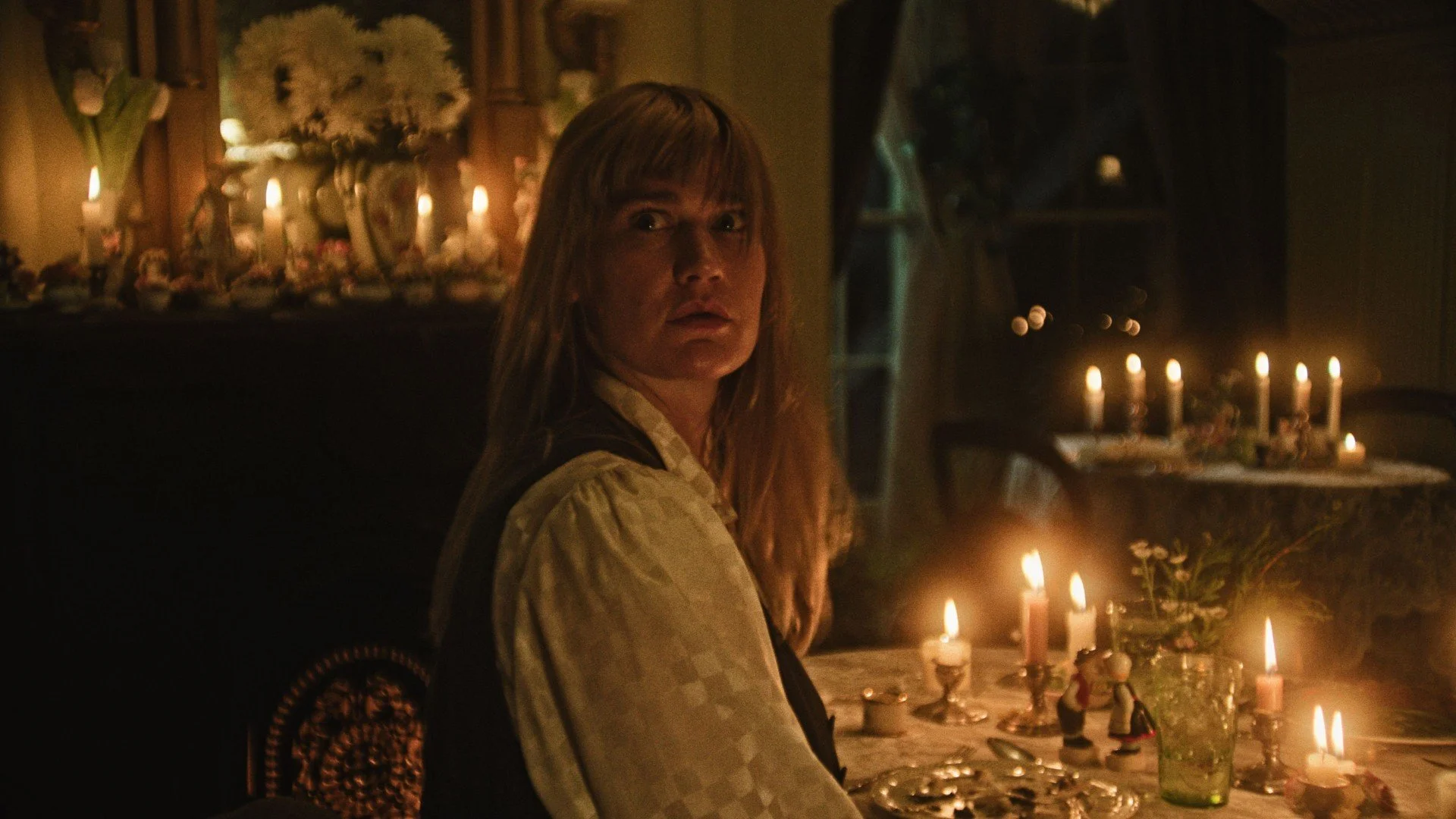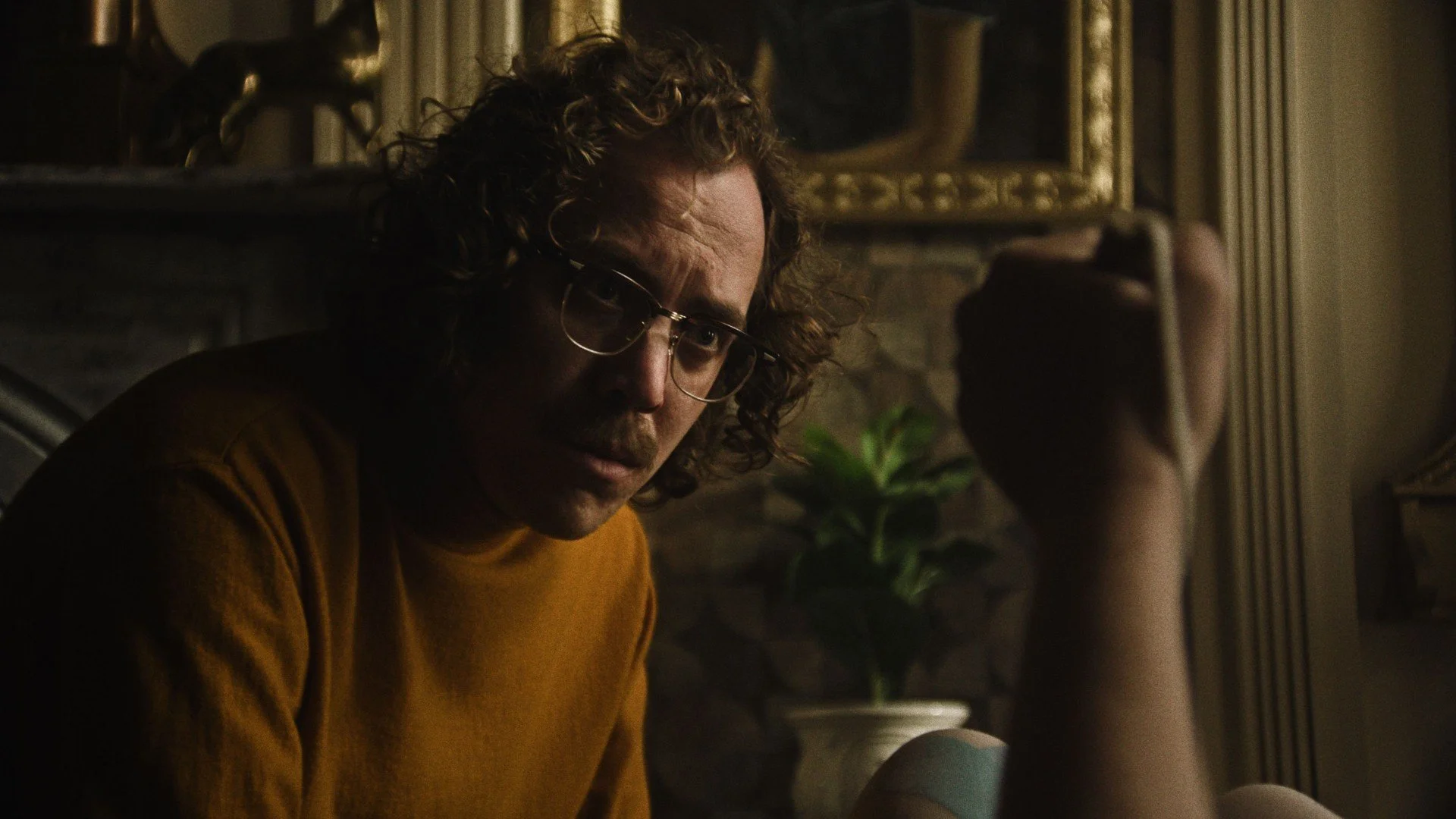TIFF25: “Honey Bunch” is a Weird Odyssey of Grief
This review was originally published on Film Obsessive.
What does it mean to love someone? It’s a loaded question with no good answer, but that doesn’t stop us from asking over and over again. Honey Bunch, the latest film from writer/director duo Madeleine Sims-Fewer and Dusty Mancinelli, is one attempt to answer the fundamental question that’s at the heart of the human experience. The way Sims-Fewer and Mancinelli choose to offer their perspective is unlike anything you might expect. Honey Bunch is a genre-bending exploration of love, devotion, and body autonomy through a low-fi, sci-fi lens.
Diana (Grace Glowicki) and Homer (Ben Petrie) have been married for quite some time. Diana recalls the day they met, as professors at a school where Homer was hanging out of a window, begging his student to participate. That was the moment she knew he was the guy for her. When we meet them, though, there’s something off about the dynamic. The unnatural feeling continues as Diana and Homer arrive at an isolated estate to help Diana recover from an accident. We don’t know the extent of her injuries, although she does have a limp, but the woman (Kate Dickie) who runs the facility assures the couple that as long as Diana commits to the program, she will be healed.
courtesy of TIFF
Honey Bunch is an odyssey of grief. Part of the program is to help Diana recover her memories, which the accident seems to have affected. As she progresses, we begin to see the relationship between the couple in a new light. We see the fights, the good times, and the emotional debates that cause a rift between them. A central, seemingly recurring fight between Diana and Homer is that Diana rarely says “I love you” when Homer says it. She reminds him that she only wants to say it when she feels it, but he counters by saying that if she never says it, how is he supposed to interpret that? Every couple has a fight like that, one that continues to resurface throughout their time together. Diana and Homer have differing ideas of devotion, and Honey Bunch forces them to work through their differences in an extreme, bizarre way.
courtesy of TIFF
What adds another layer to Honey Bunch is that Glowicki and Petrie are a couple in the real world. The mere fact that they’re playing partners in the film adds an underlying texture of truth to it. They’re clearly devoted to one another behind the scenes, and that allows them to push the limits of what unfolds on-screen. It’s also interesting to consider that Honey Bunch isn’t the only film playing at the 2025 Toronto International Film Festival where Glowicki and Petrie share the spotlight. The Sundance-premiering Dead Lover, part of the Midnight Madness program of the festival, sees the duo playing another couple. Glowicki is a gravedigger who’s desperate to fall in love for the first time in her life and Petrie is her lover. Dead Lover and Honey Bunch are both explorations of the difference between devotion, obsession, and love. The nuances that separate these feelings from each other. To really critique the films and the ways they work in conversation would be to expose the twists and turns that make each film the delightfully weird marvel that it is.
Honey Bunch opens with an old-timey song with these lyrics that repeat over and over: “I wore my elbows down to the bone for you.” Blind devotion will do that. You can bleed and grind down your bones for someone, but there must be a give and take for the relationship to last. Honey Bunch is an extreme attempt to discover how to love someone and how to manage the mistakes we make as we try to create a relationship built on devotion.
support your local film critic!
~
support your local film critic! ~
Beyond the Cinerama Dome is run by one perpetually tired film critic
and her anxious emotional support chihuahua named Frankie.
Your kind donation means Frankie doesn’t need to get a job…yet.
Follow me on BlueSky, Instagram, Letterboxd, YouTube, & Facebook. Check out Movies with My Dad, a new podcast recorded on the car ride home from the movies.


